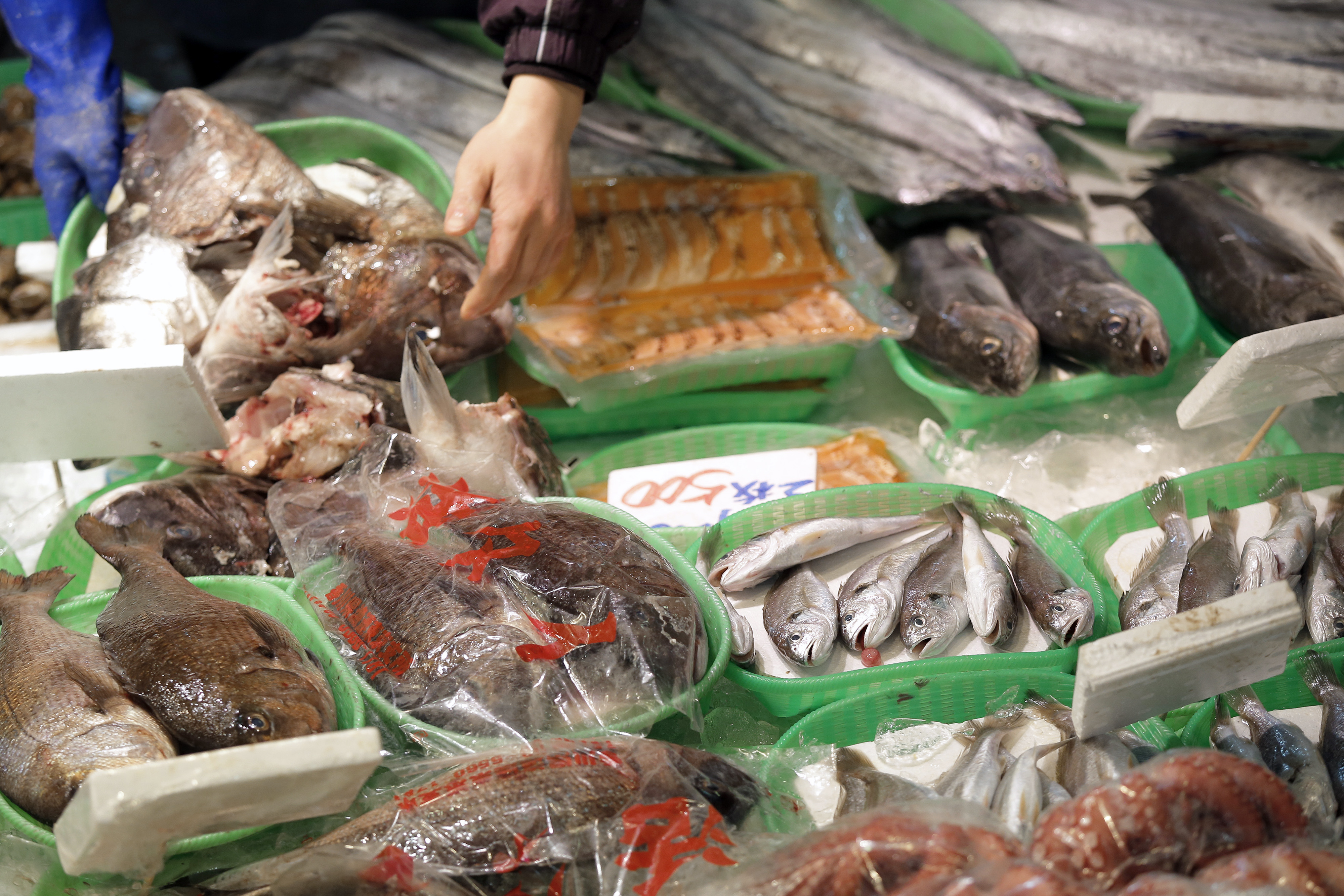The country that gave the world sushi now finds itself with too much fish.
Demand for seafood has been dropping in Japan for much of the past decade as people eat more pork and beef, forcing domestic fishermen to look for buyers abroad. With the help of a plunging yen, that strategy is working. Exports are surging, and companies like Yamato Holdings Co. and ANA Holdings Inc. are expanding a delivery network across Asia, a region that still gets most of its sushi salmon from Norway, which is more than 8,000 km (5,000 miles) away.
Exports have been a godsend to Japan's ¥1.4 trillion ($11.6 billion) seafood industry, where the number of fishermen shrank 42 percent since 1995 and competition from cheaper imports has hurt profits. While domestic demand fell more than 20 percent in the past decade, global consumption is rising as economic growth boosts incomes. Japanese seafood exports in the first half of 2015 are up almost 30 percent, providing some support to Prime Minister Shinzo Abe's goal of boosting food sales overseas.



















With your current subscription plan you can comment on stories. However, before writing your first comment, please create a display name in the Profile section of your subscriber account page.